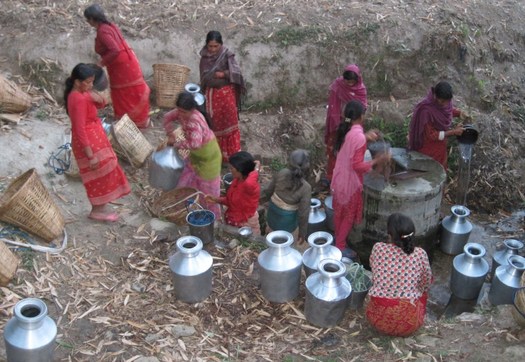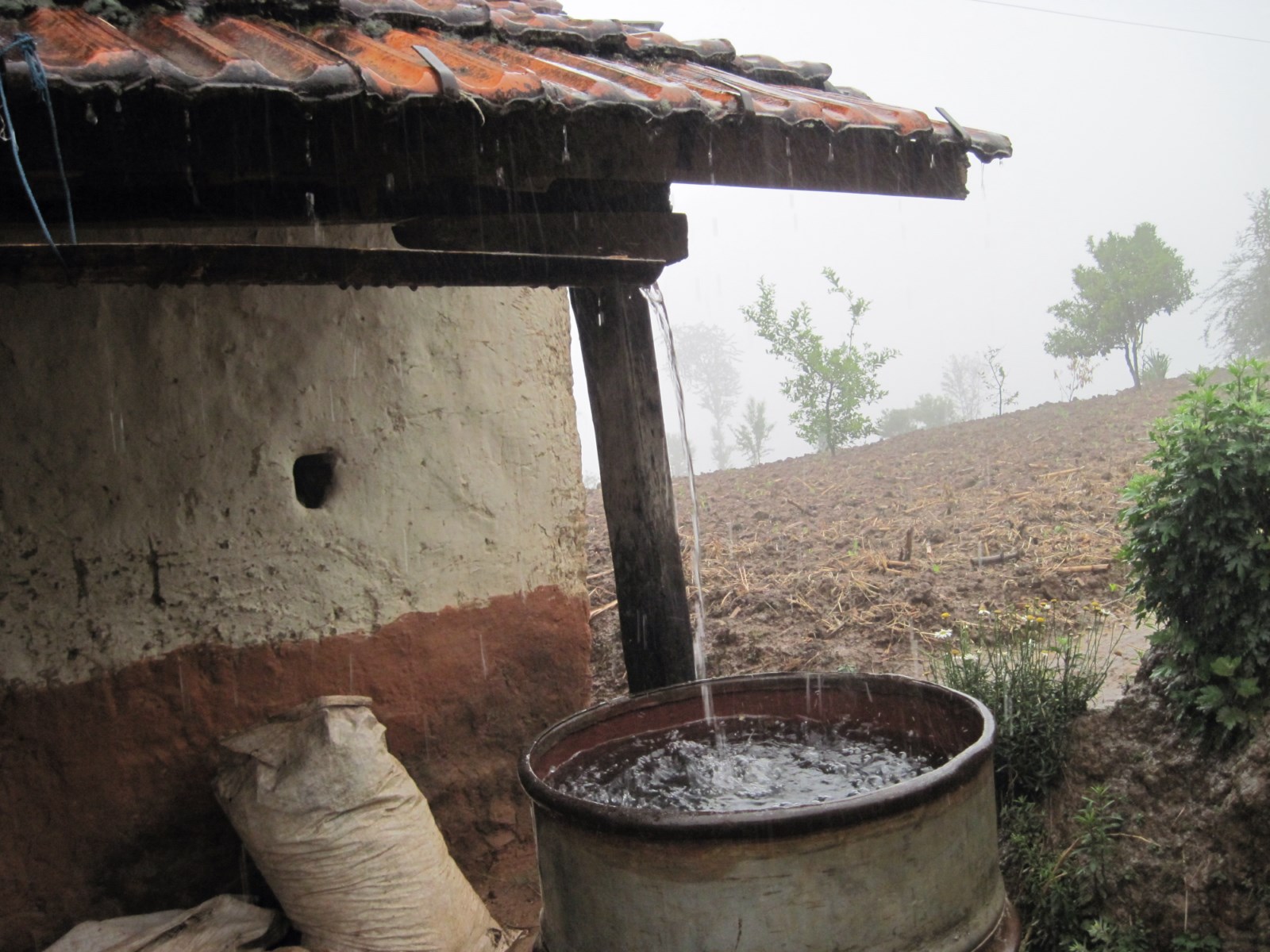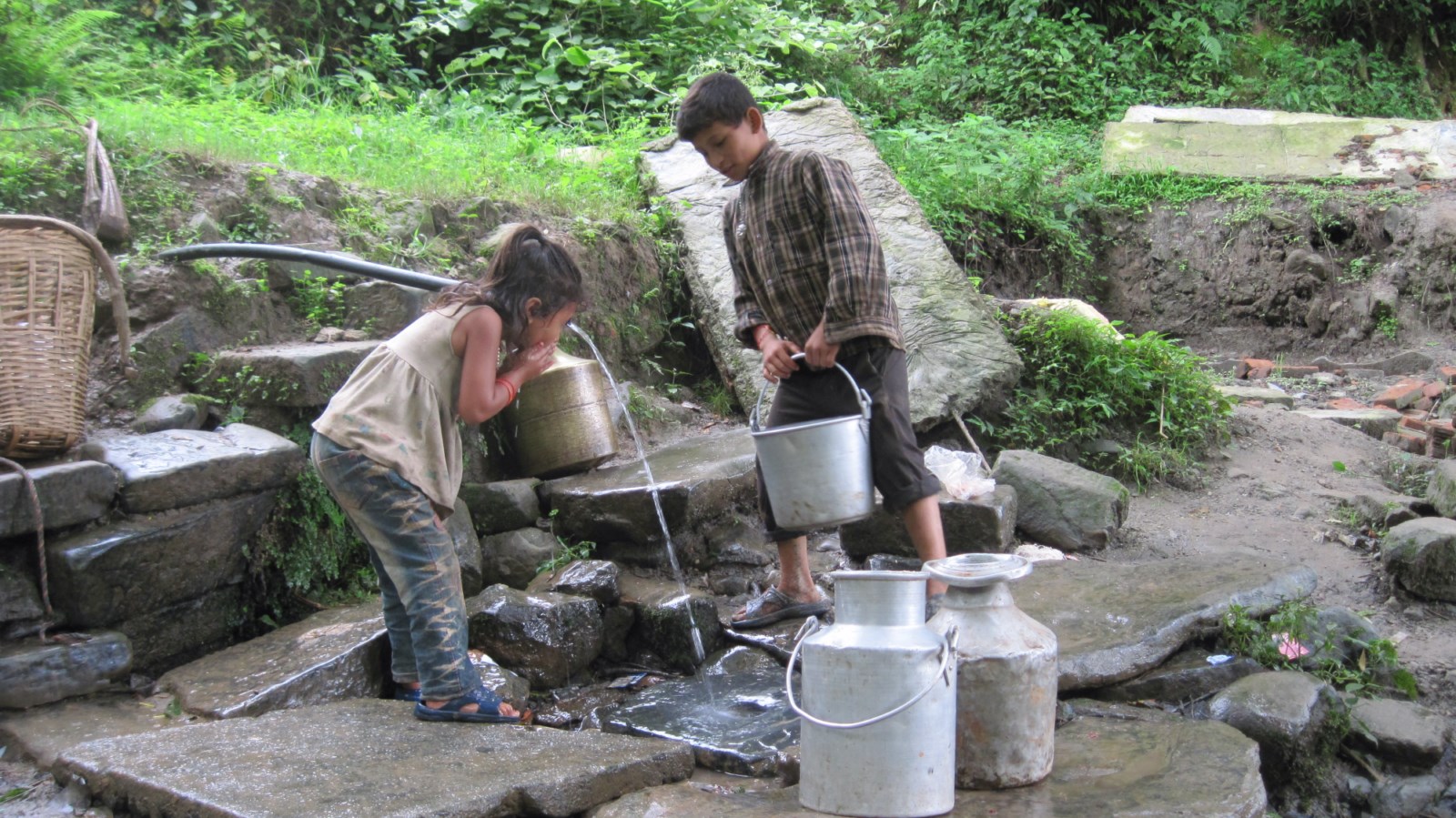Clay Water Filters- A promise to Safe Drinking Water
Fundraising campaign by
Shree Krishna Dhital
-
US$1,608.00raised of $1,600.00 goal goal
Introduction:
Safe drinking water is one of the most basic of human needs. Access to water and sanitation plays a crucial role in the overall social and economic development of a community. Yet, many developing countries are failing to apply even those standard water quality control methods developed almost a century ago for water quality improvements. Without simpler and cheaper methods, water quality control is almost non-existent in developing countries and is the ultimate challenge for professionals in this sector.
Every year about 45,000 children below the age of five years die in Nepal from sanitation related problems, which are attributed to inadequate supplies of water and/ or its poor quality. Improving the quality of the water supply and sanitation has been shown to reduce the morbidity due to different diseases by significant amounts.
Problem Statement:
In Nepal, due to rapid population growth, unsanitary disposal of wastes and other human activities, most of the water sources are becoming polluted. The prevailing practices of open defecation, unscientific disposal of human wastes and agricultural practices in most of the rural villages have increased the level of microbiological contamination in the water from streams, springs and ground sources. Water quality problems caused by physical and chemical parameters have huge impacts on public health when the concentrations are high.
Phoolbari village is a small village situated 50 K.M east of Kathmandu at the top of the hill which lies at about 2000 m. from sea level. The Village has 9 wards with about 1000 families and 5000 people. People in the village are mostly farmers and most of them have Water-Buffaloes which they rear for the milk. Children go to te government schools and help their parents after school hours. Due to the fact that Phoolbari lies in the ridge top of the hill and the water resources lie in the bottom, people in the village suffer from chronic water shortage during dry seasons. For 20 Ltrs of water in a vessel called “Gagri”, women in the village spend almost 45 minutes. Half a day, women lose just carrying water. Still if the people have access to water, the problem arises due to the safe water. Many people suffer from water borne diseases and some die due to the contaminated water. While people are getting water from the wells they use a simple bucket to get the water up. People using water from the kuwa (traditional water sources-small pond covered in 3 sides), they take it with a small pot. Wells, springs, rainwater (might be stored) are used of the whole year, while the kuwas are mostly used during dry seasons. There are several problems with water contamination. Especially, the contamination with dust and fecal bacteria reduces the water quality and may have severe influences on human health.
Following problems and ways of contamination can be observed in the water sources of Phoolbari:
- During the rainy season or after heavy rain falls the rain water is getting too fast into the well and might bring dirt and bacteria, especially fecal bacteria, into the water.
- Cross contamination occurs when different buckets from different families are used to collect the water. The buckets are not always clean enough and they are thought to be a major source of water contamination with fecal bacteria.
- In rainy seasons the village people might not be able to go to the well so they have to use rain water. Rain water is suspected to be below drinking water quality and might cause health problems. Also during collection contamination with bacteria (from roof, pipelines and in water storage pond) can occur.
- In kuwa`s the contamination is a very severe problem. Often the kuwa`s are not properly protected from environmental influences such as dust, animals or other kind of dirt. Also people use soaps and detergents near the kuwas and contaminate the water with those. So people have to collect dirty water. They do it with a small pot and often mud or sand is also collect with the water. All these things reduces the quality of the water drastically.
Due to the fact that people from Phoolbari village do not use any kind of water purification they have to use water from these different water sources. As listed above contamination with fecal bacteria and other kind of dirt is very probable and common. To give guaranty of clean water in drinking water quality, water filters are necessary.
Objectives and goals:
Treatment of water in all rural supply systems to improve the water quality seems not to be economically feasible or manageable at the community level. This really needs intensive, detailed, investigation and research to determine appropriate and sustainable technological options, which take into consideration the socio-economic and traditional values of the country. So, to ovecome this situation, clay water filter systems are one of the best option. These filters are cheaper, easy to use, safer and environment friendly.
A Clay water filter unit costs only $ 8 ($10 with sticker/logos in the filter unit). one filter unit helps 1 family with children going to school. So, what do you wait for?
Ceramic water filters have been used in various places around the world as a means of treating drinking water at the household level. Some examples include the Potters for Peace Filtron (Nicaragua), the TERAFIL terracotta filter (India), and the candle filter (India, Nepal, Bangladesh, Brazil, etc.). Ceramic filters have micro-scale pores that are effective for removing bacteria from water. The filters are made from clay that is often mixed with materials such as sawdust or wheat flour to improve porosity. Colloidal silver, an antibacterial agent, can also be added to the filters. A low-cost colloidal silver-enhanced ceramic water filter; the Filtron. These filters have a very good filtration rate, i.e. 4L/hour and has a 12Ltr. total capacity. This is enough for a family of 4-6 members. These filters are manufactured in the local markets and are tested for microbial removal before sending to the costumer units. This is a traditional practice and a an inexpensive way of getting safe drinking wtaer to those very unfortunate people who lack access to safe drinking water.
The project focuses mainly on providing safe drinking water to those who have less access to clean drinking water. This is a global campaign being started by many of the organizations in various parts of the world. Though it’s not a new program in our country and community but still many of our community don’t have enough safe drinking water. Every year many people die due to water borne diseases and many suffer due to polluted water. The project targets to reach within the unreached and raise awareness among them about the safe drinking water and its impact in the development of a healthy, happy society and a country.
The main objectives of the project are:
- To promote awareness about the safe drinking water in the communities which lack access to safe and clean drinking water.
- To test the drinking water samples from the from the project site.
- To organize water sources sanitation campaigns and wash training workshops in the communities and local schools.
- To encourage local clubs, women groups and other local organization`s participation in the environmental and water related issues in their community.
- To research on the health/environment/water related issues in community.
- To distribute the ceramics water filters in the community to ensure people get safe drinking water.
- To train the locales about the proper use of the ceramics filter and its cleanliness.
At this stage we are plannig to distribute 250 clay water filter units to 250 families as an approach to provide safe and clean drinking water to those very less fortunate ones who lack access to clean and safe drinking water. This helps create a better society through better health.
As the people in the village are only famers and economically very backward, we planned to distribute the filter units for free. Awareness and trainings on health and sanitation will be provided to the the villagers. Proper monitering system will be made to enhance the project`s motto.
For more details on our different community projects, please visit our facebook page,
http://facebook.com/budol.rotaract
We also have a video regarding the water problem scenario ongoing in the village,
http://www.youtube.com/watch?v=dVTwG0pQJe4
You can also donate via our community project partner, Everything Organic Nursery, Patlekhet, Kavre, Nepal.
http://www.everythingorganicnursery.com/community.html
Our another community project partner:
http://www.hogheavenfoundation.org/
"For things to change first I must"
"Help make this worl a beautiful place to live"
"Your small help can save lives"
Thank you.
Rewards
We will print the logo/name of the organisations into the filter unit. We will Provide a certificate of appreciation to the individual/organisation. We will send a video documentary on the change into lives that this project has made.
Organizer
- Shree Krishna Dhital
- Namobuddha Municipality, Kavrepalanchok, NP
Donors
- Guest
- Donated on Jun 29, 2013
- Janet Rehn Hernandez
- Donated on Jun 21, 2013
This project is so wonderful!
- Susan
- Donated on Jun 21, 2013
No updates for this campaign just yet
Donors & Comments
- Guest
- Donated on Jun 29, 2013
- Janet Rehn Hernandez
- Donated on Jun 21, 2013
This project is so wonderful!
- Susan
- Donated on Jun 21, 2013
- Water Team International
- Donated on Jun 21, 2013
Shree, Congratulations. You and your friends are doing great things for the less fortunate.Keep up the good work. Water Team International George Lewis
- Linda
- Donated on Jun 21, 2013
What a wonderfully worthwhile effort!
- Diane McCann
- Donated on Jun 17, 2013
- Michael Muller
- Donated on Jun 01, 2013
- KimBannister
- Donated on May 31, 2013
- Giancarlo Luiggi
- Donated on May 30, 2013
A righteous project, best of luck!
- Guest
- Donated on May 16, 2013








